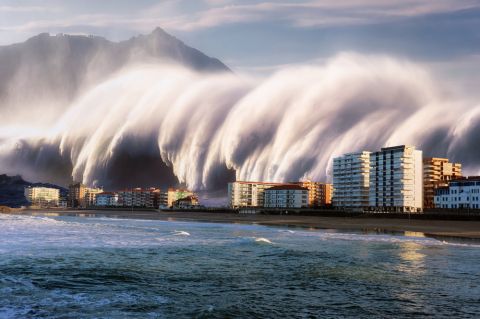ALBAWABA - An angry public exchange between former Russian President Dmitry Medvedev and U.S. President Donald Trump has made things worse between Washington and Moscow, bringing up Cold War-era language.
Since taking office again in early 2025, Trump has been very friendly with Russia and President Vladimir Putin. This has surprised Trump's Western friends, who thought he would be tougher on the war in Ukraine.
In the past few weeks, that changed when Trump said he was "greatly disappointed" that Russia was still attacking human targets and said he didn't want to talk to Putin.
Trump gave Russia a deadline in the middle of July: stop military activities in Ukraine within 50 days or face harsh economic penalties, such as oil and goods being taxed at 100%. After two weeks, he shortened the limit to 10 days because he had not heard back from Moscow, which he described as "shameful."
Medvedev, who is now Deputy Chairman of Russia's Security Council, gave Russia's response. He said that Trump's demand was a dangerous way to start a fight. He wrote on X, "Russia is not Israel, nor even Iran." He was referring to the short conflict between the U.S. and Iran last month, which was linked to Israel's war.
Medvedev said that Trump's threats were making things more likely to go to war, but not with Ukraine, but with Russia.
Trump's Strike Back
Medvedev was called a "failed former president" by Trump on Truth Social on Thursday, and Trump told him to "watch his words" or risk going into "a very dangerous zone."
A few hours later, Medvedev replied with snark, saying that Trump's response showed that Russia was going in the right direction. He warned Trump that Moscow still has nuclear weapons from the time of the Soviet Union as a last option.
Putting nuclear submarines to work
By Friday, the argument had turned into military drills. Trump said that he had ordered two nuclear subs to be sent close to Russia as a safety measure in case Medvedev's "foolish and provocative" comments were more than just words.
It's back: "Dead Hand"
Medvedev escalated the situation by activating Russia's "Dead Hand" system, a nuclear response system from the Cold War that could fire missiles even if the country's leadership and command structure were destroyed.
The system was part of Moscow's response to President Ronald Reagan's 1983 announcement of the U.S. Strategic Defense Initiative (SDI), also known as "Star Wars." SDI was never fully effective, but the Soviet plan was to make sure that its nuclear weapons could be used to defend itself and in response to attacks.
More dangers
There are fears of a return to Cold War-style bluffing after the argument between Trump and Medvedev, in which both sides made public threats and brought up nuclear issues.
It's still not clear whether this standoff will end or get worse, but experts say that tying nuclear threats to political disagreements over Ukraine could make ties between the US and Russia the most dangerous they've been in decades.










